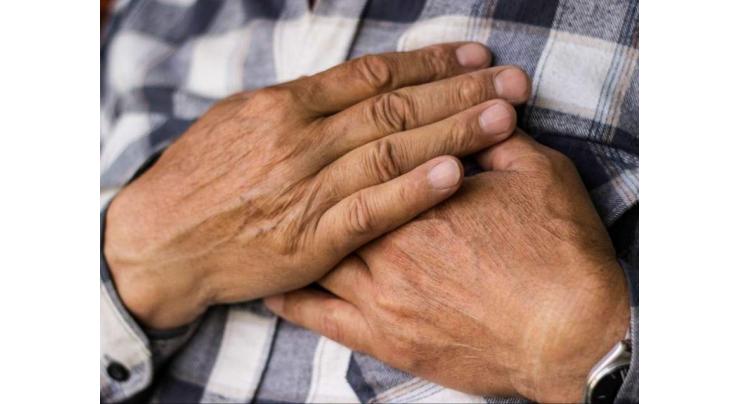
Can Mammograms Show Who Is At Risk Of Heart Failure?
Umer Jamshaid Published December 06, 2019 | 12:16 PM

Mammograms have, so far, had the single role of identifying potentially cancerous tumors in the breast. However, could they also help doctors identify women at risk of heart disease and heart failure
Islamabad (UrduPoint / Pakistan Point News - 06th December, 2019) Mammograms have, so far, had the single role of identifying potentially cancerous tumors in the breast. However, could they also help doctors identify women at risk of heart disease and heart failure?Some researchers believe that mammograms could also help doctors identify women with a high risk of heart failure.Mammograms work by using low energy X-rays to "scan" breast tissue for irregularities and abnormalities that may be signs of cancer.
They are the first port of call when it comes to diagnosing breast cancer in its early stages.In 2016, the United States Preventive Services Task Force recommended that women aged 50-74 years the age range in which women's risk of breast cancer increases should undergo breast cancer screening once every 2 years.Mammograms do not only detect potential cancerous tumors, though.
As it turns out, they also show the formation of breast arterial calcifications, which are calcium buildups inside the arteries in the breast.Killing two birds with one stone?Breast arterial calcification is often associated with coronary artery calcium a dangerous buildup of calcium sediment in the arteries that transport oxygenated blood to the heart particularly in women.
Coronary artery calcium is, in itself, a strong predictor of cardiovascular disease, and doctors will use computed tomography (CT) scans to screen for these buildups in people whom they believe to be at risk.Dr.
Bui and colleagues argue that breast arterial calcification can help identify women who may be at risk of cardiovascular problems, including heart attack, stroke, and heart failure, in which the heart is unable to pump blood effectively.In particular, the investigators argue that mammograms which women over a certain age will often undertake as a regular screening procedure anyway could help doctors detect not just cancer but also the risk of heart disease.
They explain that these tests could do this by highlighting the presence of calcium buildups in breast arteries.Looking at the evidenceIn their study, the investigators analyzed data from the medical records of 278 female participants with a mean age of about 61 years.
These records covered the period of 2006-2016.All of these participants had undergone both a mammogram and a coronary CT scan within the same year.
Recent Stories

Saudi FM urges immediate ceasefire in Gaza

Expanded, rebranded National Women's One-Day tournament to start tomorrow

President, Saudi FM discuss challenges being faced by Muslim Ummah

Bushra Ansari ties knot with Iqbal Hussain

Shaheen likely to miss initial two matches of Pak Vs NZ T20I series

LHC suspends PML-N Rana Arshad’s victory notification from PP-133

Faizabad Dharna Commission exonerates former Spy Chief Faiz Hameed

Pakistan calls for enhanced information integrity on digital platforms

Pakistan starts discussion with IMF about new loan agreement: Finance Minister

Currency Rate In Pakistan - Dollar, Euro, Pound, Riyal Rates On 16 April 2024

Today Gold Rate in Pakistan 16 April 2024

Govt hikes petrol price by Rs4.53 per litre for next fortnight
More Stories From Health
-

ATC dismisses bail petition of doctor involved in illegal kidneys transplant
7 days ago -

Dr. Shehzad warns against deviation from WHO guidelines on anti-smoking
7 days ago -

Health activists express concerns over attempts to derail tobacco control
9 days ago -

UHS declares MBBS first prof, MS urology exam results
18 days ago -

Increased diagnostic testing for drug resistance
24 days ago -

IRD releases groundbreaking results of end TB programme
26 days ago
-

Increased diagnostic testing for drug resistance TB will enhance patients’ treatment outcome
29 days ago -

JRF to provide insulin to underprivileged diabetic patients
1 month ago -

MBBS third professional annual exams 2023: check results here
1 month ago -

CM Maryam visits PIC, inquiries after patients
1 month ago -

Health expert recommends exercise for weight loss in Ramazan
1 month ago -

Blood camp held at SNGPL office
1 month ago











